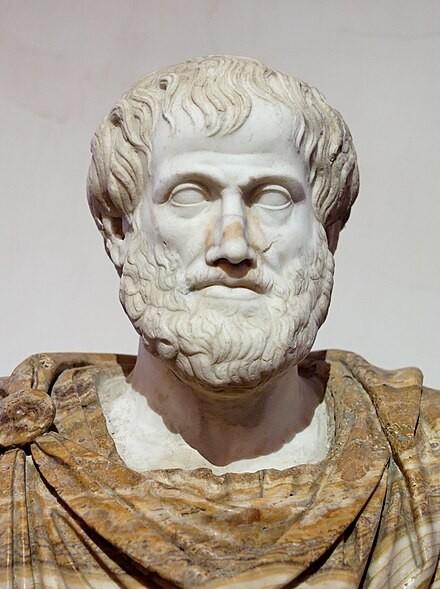Comparative politics is the study of different political systems, structures, and outcomes across countries. COMPARE.EDU.VN offers comprehensive comparisons, enabling you to understand global political dynamics and make informed decisions. Delve into political analysis, regime types, and political institutions.
1. Unveiling the Essence of Comparative Politics
Comparative politics is a subfield of political science that focuses on comparing and contrasting political systems, institutions, behaviors, and outcomes across different countries. It aims to identify patterns, similarities, and differences in how politics operates around the world. This field helps us understand why some countries are democratic while others are authoritarian, why some have stable economies while others struggle with poverty, and why some are peaceful while others are prone to conflict.
1.1. Exploring the Scope of Comparative Politics
The scope of comparative politics is broad and encompasses a variety of topics, including:
- Political institutions: This includes the study of legislatures, executives, judiciaries, and other formal structures of government.
- Political behavior: This includes the study of voting behavior, public opinion, political participation, and social movements.
- Political processes: This includes the study of elections, political parties, interest groups, and policy-making.
- Political outcomes: This includes the study of economic development, social welfare, political stability, and conflict.
- Regime Types: Analyzing different forms of government such as democracies, authoritarian regimes, and hybrid systems.
- Electoral Systems: Comparing how different countries conduct elections and the impact on political representation.
- Party Systems: Examining the structures and dynamics of political parties and their influence on governance.
- Public Policy: Studying how different countries address social and economic issues through policy initiatives.
- Political Culture: Understanding the values, beliefs, and attitudes that shape political behavior and institutions.
1.2. The Significance of Comparative Politics
Comparative politics is important for several reasons:
- Understanding the world: It helps us understand the diversity of political systems and cultures around the world.
- Informing policy: It can provide insights into the effectiveness of different policies and institutions.
- Promoting democracy: By studying democratic transitions and institutions, it can help promote democracy in other countries.
- Improving governance: By identifying best practices in governance, it can help improve the quality of government around the world.
- Predicting Political Trends: Provides insights into future political developments by analyzing current trends and historical patterns.
- Enhancing Critical Thinking: Develops analytical skills necessary for understanding complex political issues.
2. A Historical Journey Through Comparative Politics
The study of comparative politics has ancient roots, tracing back to the works of philosophers like Aristotle, who compared different Greek city-states to understand their political structures and outcomes. Over the centuries, the field has evolved, incorporating new methodologies and theoretical frameworks to analyze political phenomena across countries.
2.1. Ancient Roots: Aristotle’s Comparative Approach
Aristotle, often regarded as the “father” of political science, employed comparative methodologies to analyze competing Greek city-states. His work laid the foundation for the systematic study of politics by examining different constitutions and political systems.
 Aristotle's political theoryAristotle’s comparative analysis of Greek city-states laid the groundwork for the systematic study of politics.
Aristotle's political theoryAristotle’s comparative analysis of Greek city-states laid the groundwork for the systematic study of politics.
2.2. Influential Thinkers: From Machiavelli to Weber
The legacy of Aristotle influenced subsequent thinkers, including Niccolo Machiavelli, Charles Montesquieu, and Max Weber, who contributed to the development of comparative political thought. Machiavelli’s The Prince offered insights into political power and strategy, while Montesquieu’s The Spirit of the Laws explored the relationship between laws, customs, and government structures. Weber’s work on bureaucracy and the Protestant ethic provided valuable perspectives on the social and cultural factors shaping political and economic development.
2.3. The Second Scientific Revolution: A Methodological Shift
According to Gerardo Munck, the field of comparative politics underwent a “Second Scientific Revolution” between 1989 and 2005, marked by a greater emphasis on methodology rather than theory. This shift led to the development of more rigorous research designs, quantitative analysis, and statistical techniques for studying political phenomena across countries.
3. Core Concepts in Comparative Politics: Understanding the Building Blocks
To effectively navigate the field of comparative politics, it’s essential to grasp its core concepts. These building blocks provide a framework for understanding how political systems operate, how societies are governed, and how individuals interact with the state.
3.1. State: The Foundation of Political Organization
The state is a central concept in comparative politics, representing a political entity with a monopoly on the legitimate use of force within a defined territory. States vary in their capacity, autonomy, and legitimacy, shaping their ability to govern effectively.
3.2. Regime: The Rules of the Game
A regime refers to the fundamental rules and norms that govern political power and decision-making within a state. Regimes can range from democratic to authoritarian, influencing the level of political participation, accountability, and individual rights.
3.3. Government: The Actors in Power
The government consists of the individuals and institutions that hold political power and make decisions on behalf of the state. Governments can change through elections, coups, or revolutions, leading to shifts in policy and governance.
3.4. Nation: A Sense of Shared Identity
A nation is a group of people who share a common identity, culture, language, or history. Nations can exist within or across state boundaries, influencing political mobilization, nationalism, and conflict.
3.5. Political Culture: Shaping Political Behavior
Political culture encompasses the values, beliefs, and attitudes that shape political behavior and institutions within a society. Political culture can influence levels of political participation, trust in government, and support for democratic values.
4. Methodologies in Comparative Politics: Tools for Analysis
Comparative politics employs a variety of methodologies to analyze political phenomena across countries. These tools allow researchers to systematically compare and contrast different cases, identify patterns, and develop explanations for political outcomes.
4.1. Case Studies: In-Depth Analysis of Individual Countries
Case studies involve the in-depth analysis of individual countries or cases to understand their political systems, institutions, and outcomes. Case studies can provide rich contextual detail and insights into complex political processes.
4.2. Statistical Analysis: Quantitative Approaches to Comparison
Statistical analysis uses quantitative data and statistical techniques to compare political phenomena across a large number of countries. Statistical analysis can help identify correlations, test hypotheses, and make generalizations about political behavior and outcomes.
4.3. Qualitative Analysis: Exploring Context and Meaning
Qualitative analysis involves the interpretation of textual data, interviews, and observations to understand the context and meaning of political phenomena. Qualitative analysis can provide insights into the motivations, beliefs, and values that shape political behavior.
4.4. Comparative Method: Structured Comparison Across Cases
The comparative method involves the structured comparison of two or more cases to identify similarities and differences, and to develop explanations for political outcomes. The comparative method can help researchers isolate key variables and test hypotheses about causal relationships.
5. Key Theories in Comparative Politics: Explaining the World
Comparative politics is guided by a variety of theories that provide frameworks for understanding political phenomena. These theories offer different perspectives on the causes and consequences of political behavior, institutions, and outcomes.
5.1. Modernization Theory: Linking Development and Democracy
Modernization theory argues that economic development leads to social and cultural changes that promote democracy. As societies become more industrialized and urbanized, they tend to develop more complex social structures, higher levels of education, and greater political participation, which in turn contribute to democratization.
5.2. Dependency Theory: Challenging Global Inequality
Dependency theory critiques modernization theory, arguing that developing countries are trapped in a state of dependence on wealthy countries due to historical patterns of colonialism and exploitation. Dependency theory emphasizes the role of global economic structures in perpetuating inequality and hindering development in the developing world.
5.3. Institutionalism: The Power of Institutions
Institutionalism emphasizes the role of institutions in shaping political behavior and outcomes. Institutions, such as constitutions, electoral systems, and political parties, provide the rules of the game that structure political interactions and influence the distribution of power.
5.4. Rational Choice Theory: Individuals as Strategic Actors
Rational choice theory assumes that individuals are rational actors who make decisions based on their own self-interest. Rational choice theory can be used to explain a variety of political phenomena, such as voting behavior, political bargaining, and collective action.
6. Major Themes in Comparative Politics: Exploring Key Debates
Comparative politics explores a range of major themes that are central to understanding political dynamics around the world. These themes include democracy, authoritarianism, political economy, and identity politics.
6.1. Democracy: Forms, Transitions, and Challenges
Democracy is a central theme in comparative politics, encompassing the study of democratic forms, transitions, and challenges. Comparative political scientists examine different types of democracy, such as parliamentary and presidential systems, and analyze the factors that contribute to democratic consolidation and stability. They also explore the challenges facing democracies, such as political polarization, corruption, and inequality.
6.2. Authoritarianism: Types, Stability, and Transitions
Authoritarianism is another major theme in comparative politics, focusing on the study of non-democratic regimes. Comparative political scientists examine different types of authoritarianism, such as military dictatorships, single-party states, and personalist regimes, and analyze the factors that contribute to authoritarian stability and durability. They also explore the processes of authoritarian breakdown and transition to democracy.
6.3. Political Economy: The Interplay of Politics and Economics
Political economy examines the interplay of politics and economics, exploring how political institutions and processes shape economic outcomes, and how economic factors influence political behavior. Comparative political scientists study a range of topics in political economy, such as trade policy, fiscal policy, and development strategies.
6.4. Identity Politics: The Role of Group Identities
Identity politics examines the role of group identities, such as ethnicity, religion, and gender, in shaping political behavior and outcomes. Comparative political scientists study how identity groups mobilize politically, how identity influences voting behavior, and how identity conflicts can lead to political instability.
7. Contemporary Issues in Comparative Politics: Addressing Global Challenges
Comparative politics is constantly evolving to address contemporary issues and global challenges. These include globalization, political violence, and environmental politics.
7.1. Globalization: Impacts on States and Societies
Globalization refers to the increasing interconnectedness of states and societies through trade, investment, migration, and communication. Comparative political scientists examine the impacts of globalization on state sovereignty, economic development, and cultural identity.
7.2. Political Violence: Causes, Consequences, and Prevention
Political violence encompasses a range of phenomena, including civil war, terrorism, and genocide. Comparative political scientists study the causes and consequences of political violence, and explore strategies for conflict prevention and resolution.
7.3. Environmental Politics: Addressing Climate Change and Sustainability
Environmental politics examines the political dimensions of environmental issues, such as climate change, pollution, and resource depletion. Comparative political scientists study how states and societies respond to environmental challenges, and explore the role of international cooperation in addressing global environmental problems.
8. How to Study Comparative Politics: Resources and Strategies
For students and researchers interested in studying comparative politics, there are a variety of resources and strategies available. These include academic journals, textbooks, research centers, and online resources.
8.1. Academic Journals: Staying Up-to-Date
Academic journals are a valuable resource for staying up-to-date on the latest research in comparative politics. Some of the leading journals in the field include Comparative Political Studies, World Politics, and The American Political Science Review.
8.2. Textbooks: Foundational Knowledge
Textbooks provide a comprehensive overview of the field of comparative politics, covering key concepts, theories, and methodologies. Some popular textbooks include Comparative Politics: Structures and Choices by Lowi, Ginsberg, Shepsle, and Ansolabehere, and Comparative Politics: Rationality, Culture, and Structure by Clark, Golder, and Golder.
8.3. Research Centers: Engaging with Experts
Research centers focused on comparative politics offer opportunities to engage with experts in the field, attend conferences and workshops, and access research resources. Some notable research centers include the Center for European Studies at Harvard University and the Institute of International Studies at the University of California, Berkeley.
8.4. Online Resources: Accessing Information
Online resources, such as websites, blogs, and databases, provide access to a wealth of information on comparative politics. These resources can be used to research specific topics, find data, and connect with other scholars in the field.
9. The Future of Comparative Politics: Trends and Challenges
The field of comparative politics is constantly evolving, with new trends and challenges shaping its future direction. These include the rise of populism, the spread of digital technology, and the increasing importance of global governance.
9.1. The Rise of Populism: Implications for Democracy
The rise of populism in many countries around the world poses a challenge to democratic institutions and norms. Comparative political scientists are studying the causes and consequences of populism, and exploring its implications for democracy.
9.2. The Spread of Digital Technology: Transforming Politics
The spread of digital technology is transforming politics, creating new opportunities for political participation, mobilization, and communication. Comparative political scientists are studying the impacts of digital technology on elections, social movements, and political discourse.
9.3. The Increasing Importance of Global Governance: Addressing Transnational Issues
The increasing importance of global governance reflects the growing recognition that many of the world’s most pressing challenges, such as climate change, pandemics, and economic crises, require international cooperation to address effectively. Comparative political scientists are studying the role of international organizations, treaties, and norms in addressing transnational issues.
10. Comparative Politics and You: Making Informed Decisions
Understanding comparative politics can empower you to make more informed decisions as a citizen, consumer, and global actor. By comparing different political systems, policies, and outcomes, you can gain a deeper understanding of the world and your place in it.
10.1. Citizen Engagement: Understanding Political Systems
By understanding different political systems and how they operate, you can become a more engaged and informed citizen. This knowledge can help you evaluate political candidates, understand policy debates, and participate effectively in democratic processes.
10.2. Consumer Choices: Evaluating Products and Services
Comparative politics can also inform your consumer choices by helping you evaluate products and services from different countries and companies. By understanding the political and economic contexts in which these products and services are produced, you can make more informed decisions about what to buy and support.
10.3. Global Awareness: Engaging with the World
Finally, comparative politics can broaden your global awareness and help you engage more effectively with the world. By understanding the diversity of political systems, cultures, and societies, you can develop a more nuanced and informed perspective on global issues and challenges.
Comparative political scientists analyze the complexities of government structures worldwide to enhance our global understanding.
COMPARE.EDU.VN simplifies complex comparisons, providing you with the tools to understand global political systems and make well-informed decisions. Whether you’re analyzing political systems, evaluating economic policies, or understanding cultural identities, our platform offers comprehensive comparisons to guide your understanding.
10.4. Making Informed Choices with COMPARE.EDU.VN
Are you finding it difficult to compare different political systems and policies? Do you need reliable information to make informed decisions? COMPARE.EDU.VN offers comprehensive comparisons of political systems, economic policies, and cultural identities, providing you with the insights you need to navigate the complexities of the world. Visit COMPARE.EDU.VN today and start making smarter choices.
For further inquiries or assistance, contact us at:
Address: 333 Comparison Plaza, Choice City, CA 90210, United States
WhatsApp: +1 (626) 555-9090
Website: COMPARE.EDU.VN
Frequently Asked Questions (FAQ)
- What is the main goal of comparative politics?
- To compare and contrast political systems, institutions, and behaviors across different countries to identify patterns and explain political outcomes.
- How does comparative politics differ from international relations?
- Comparative politics focuses on domestic politics within countries, while international relations examines the interactions between countries.
- What are some common research methods used in comparative politics?
- Case studies, statistical analysis, qualitative analysis, and the comparative method are frequently used.
- Why is understanding political culture important in comparative politics?
- Political culture shapes political behavior and institutions, influencing levels of political participation and trust in government.
- How can comparative politics help in understanding current global issues?
- It provides a framework for analyzing and addressing challenges such as globalization, political violence, and environmental issues.
- What is the role of institutions in shaping political outcomes?
- Institutions provide the rules of the game that structure political interactions and influence the distribution of power.
- How does globalization affect state sovereignty?
- Globalization can impact state sovereignty by increasing interconnectedness and reducing the ability of states to control their borders and economies.
- What are the main types of authoritarian regimes?
- Military dictatorships, single-party states, and personalist regimes are common types of authoritarian governments.
- How can understanding comparative politics benefit citizens?
- It helps citizens become more engaged and informed, enabling them to evaluate political candidates and participate in democratic processes effectively.
- Where can I find reliable comparative analyses of different countries’ political systems?
- compare.edu.vn offers comprehensive comparisons to help you understand various political systems and make informed decisions.

